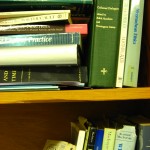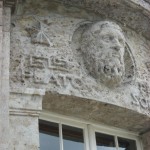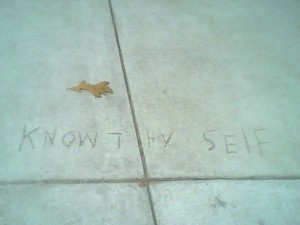 Although it doesn’t quite feel like it yet in Upper-East Tennessee, it is Autumn, the beginning of a new school year, and I have the good fortune of teaching a college class. Originally, the class was largely Plato and Aristotle, then was expanded into more of a general Ancient Philosophy class, and then became what it is now: How to Live Well: Ancient Philosophy and Enduring Questions.
Although it doesn’t quite feel like it yet in Upper-East Tennessee, it is Autumn, the beginning of a new school year, and I have the good fortune of teaching a college class. Originally, the class was largely Plato and Aristotle, then was expanded into more of a general Ancient Philosophy class, and then became what it is now: How to Live Well: Ancient Philosophy and Enduring Questions.
We begin with Socrates—everything begins with Socrates.
Socrates may have been a brilliant original thinker, or might have been a pernicious troublemaker; he may have been one of the first great martyrs of free thought, or he may have been a dangerous cynic whose students attempted a totalitarian coup of Athens.
Maybe, all of the above.
We don’t entirely know—what we know of him is not a person Socrates, but a character within the dialogues written by a former student. The ideas expressed may be his, or may be Plato’s or may be a game.
We don’t know much of the person Plato—the writings he produced where he spoke for himself have been largely lost, and what we have are a series of dialogues from which we try to infer his ideas.
Yet, we begin with Socrates, because Socrates asked questions. He asked questions, he took answers, and then he said “but wait….that doesn’t seem right…” and he asked more questions.
That is how philosophy began.
I like that.
As I struggle through this life longer and longer, I also appreciate what he wanted to ask questions about. How do we live well?
He lived at the tail end of a great empire, a brilliant empire, a scientific, literary, poetic, artistic and beautiful empire.
He lived at the time it was all unraveling, and everybody was uncertain, and everybody was afraid of causing a stir, and nobody knew what was right or what was wrong anymore, or where to turn for answers, and instead everybody went through the motions and was ironic and clever and local and traditional and new at the same time, and the economy was shot, and nobody knew what would happen next.
If you do read any of the Platonic dialogues, bear one thing in mind: Everything is a question.
The key to reading is trying to keep track of what the question is.
What is the question? What does he mean by the question? Does he mean what we would mean, or does he mean something else? Does he change what the question means in the dialogue? What possible answers are advanced? How and why does Socrates shoot them down?
What are the questions? What are his answers?
Christopher Phillips, the foundr of the Socrates Café movement, characterizes Socrates as always being concerned with 6 Questions:
What is virtue?
What is moderation?
What is justice?
What is good?
What is courage?
What is piety?
That’s not a bad starting point. Those were all good questions to ask 25 centuries ago; those are all good questions to ask now.
The down-side to the class is this: I dislike Plato.
 A brilliant student I had in this class a few years back characterized him as seeming really cool at first, but by the end of The Republic, he seems more like a cross between Dr. James Dobson and V. I. Lenin. That’s a pretty bright characterization.
A brilliant student I had in this class a few years back characterized him as seeming really cool at first, but by the end of The Republic, he seems more like a cross between Dr. James Dobson and V. I. Lenin. That’s a pretty bright characterization.
Mostly, though, I dislike his idealism. Plato saves the idea of absolute truth by locating it in a real of ideas or pure forms somewhere outside of the corruption of our day-to-day lives. The material world is secondary, a mere shadow of the real.
I have friends to whom this idealism appeals, and who like to quote Pierre Teilhard de Chardin “We are not human beings having a spiritual experience. We are spiritual beings having a human experience.” I could not disagree more. I have fought long and hard to stay in this material world, and my scarred and chemically fluctuating body–permeated by my mind to the tips of my fingers, and in turn radiating my mind through cosmos upon cosmos of imagination. I will fight for it, and remain true to it, and have no desire, when it is done, to be cursed with drinking from the river Styx, forgetting all my body has taught me, and starting anew.


